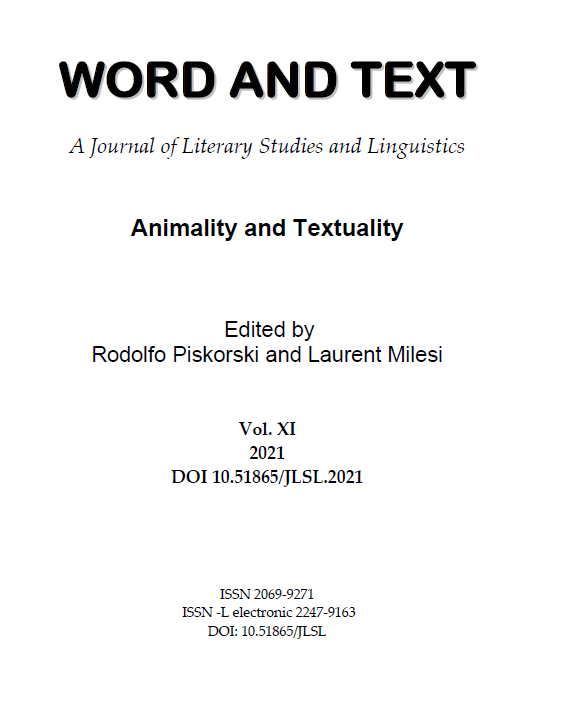Hélène Cixous’s Creaturely "Poethics"
Hélène Cixous’s Creaturely "Poethics"
Author(s): Marta SegarraSubject(s): Fiction, Ethics / Practical Philosophy, Aesthetics, Comparative Study of Literature, French Literature, Contemporary Philosophy, Structuralism and Post-Structuralism, Cultural Anthropology / Ethnology, Psychoanalysis, Phenomenology, Hermeneutics, Theory of Literature, Ontology
Published by: Universitatea Petrol-Gaze din Ploieşti
Keywords: Hélène Cixous; animality; writing; poethics; animals’ love; cry
Summary/Abstract: Drawing on Jacques Derrida’s and Sarah Kofman’s conception of writing, Anat Pick’s notion of the ‘creaturely’ and Kári Driscoll’s ‘zoopoetics’, this article discusses the relationship between textuality and animality in Hélène Cixous’s work. Cixous’s writing has been described as inscribing the body in the text, which may be considered an ethical engagement; her embodied poetics can thus be called a creaturely poethics. The analysis focuses mostly on Cixous’s latest texts: Les Sans Arche d’Adel Abdessemed (2018), Animal amour (2021) – which deal openly with animals – and her recent fictions on the Shoah, 1938, nuits (2019) and Ruines bien rangées (2020). In them, animality not only traverses human and non human animals, but also beings considered inanimate, such as Osnabrück’s synagogue. Particularly, Ruines bien rangées gives a voice – and, above all, a ‘cry’ – to all beings reduced to silence, and therefore to death, by the Nazis.
Journal: Word and Text, A Journal of Literary Studies and Linguistics
- Issue Year: XI/2021
- Issue No: 1
- Page Range: 55-67
- Page Count: 13
- Language: English

